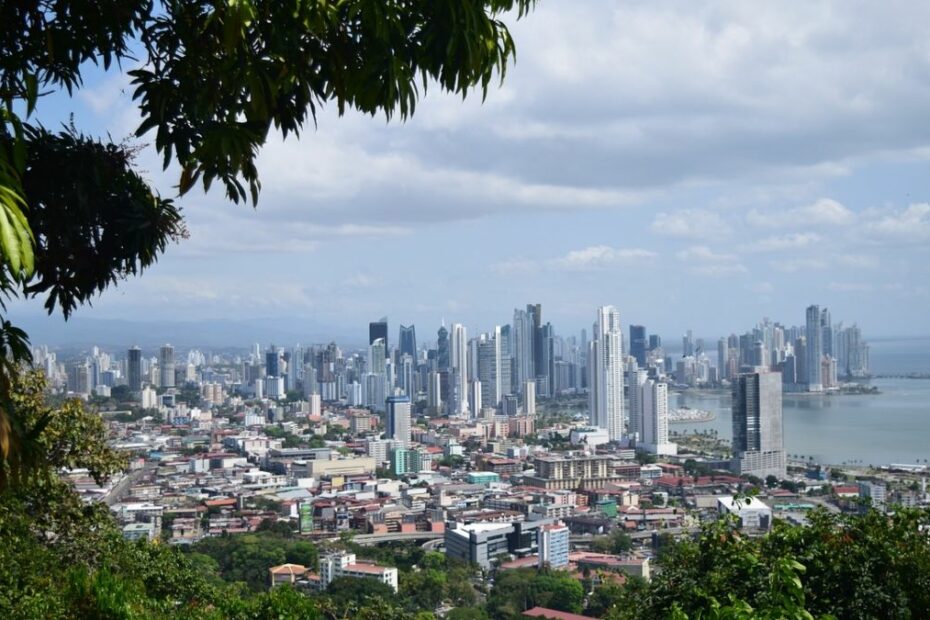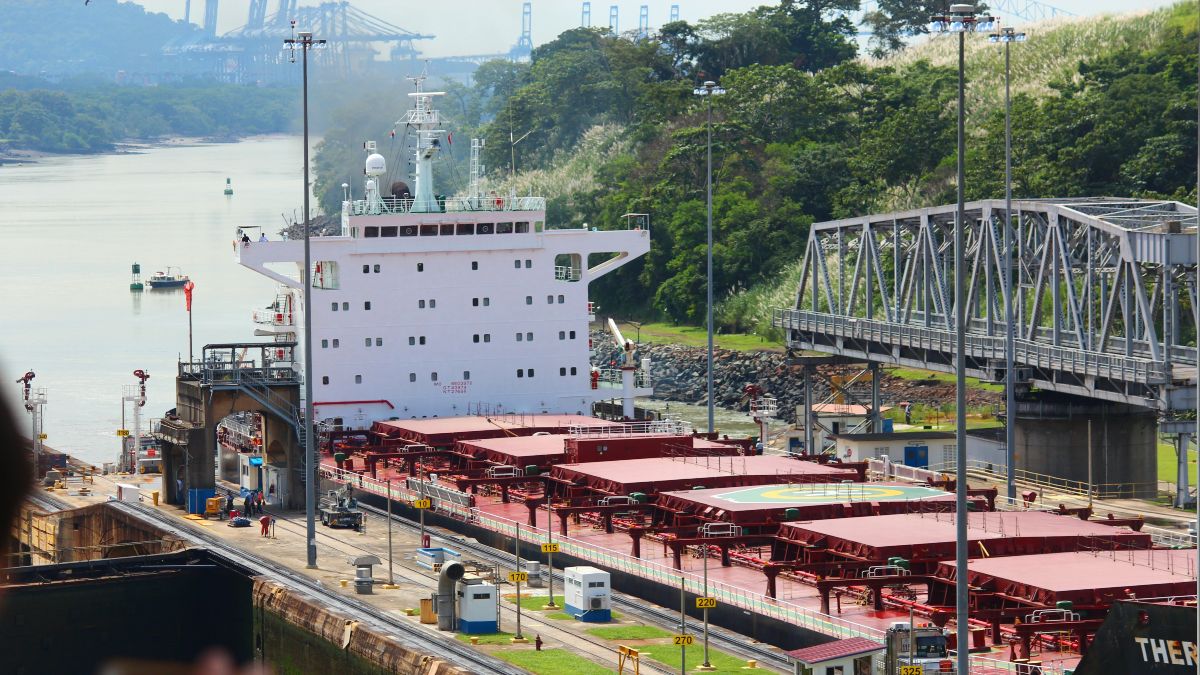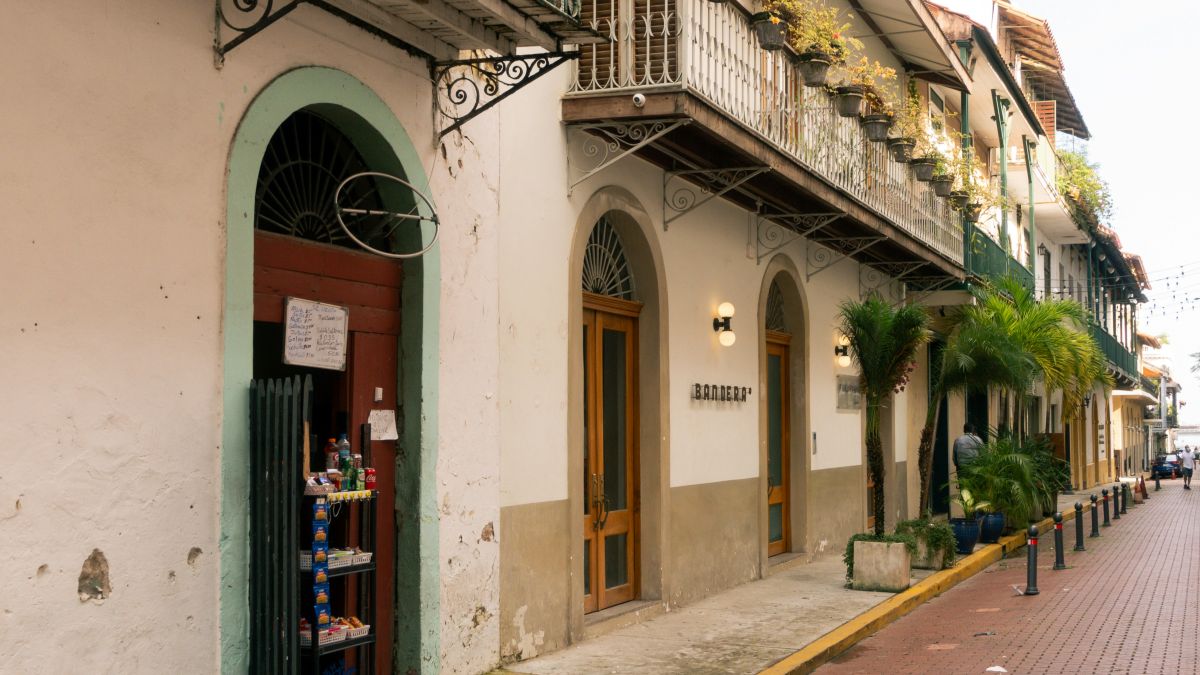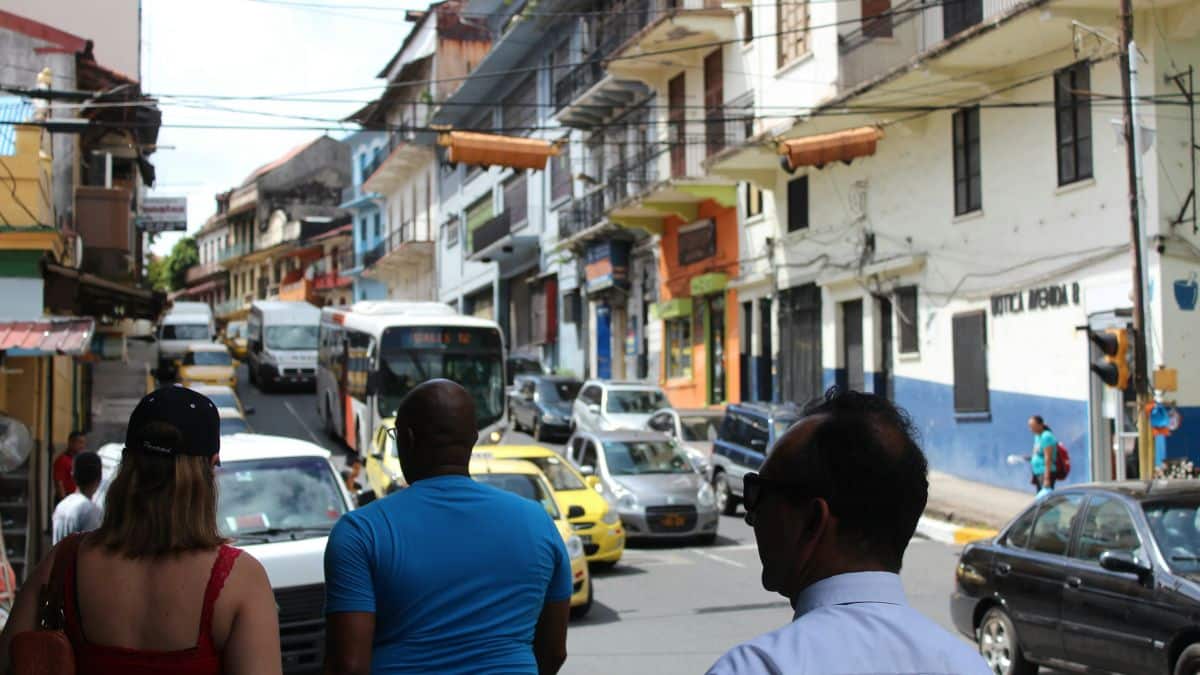Navigating Panama’s education options can be complex for a newly-arrived foreign families. From top-tier international schools to local establishments and home schooling, many considerations come into play. Join us as we explore the choices for expat children’s education in Panama.
Jay holds up his iPad to show me his latest creation on Minecraft, breaking my concentration. “Look, Papa, I made an isthmus! It looks like Panama!”
As I write, my son mirrors me, and we both lie face down on the bed, chests propped up on pillows, legs twirling in the air behind us. Usually, Jay’s comments are a minor distraction, but this time they pull me out of my writer’s block. I was trying to summarize our experiences since moving here in relation to education in Panama and my children’s schooling. That, I thought, would be a good introduction to this article.
As parents and professional teachers, his mother and I are confident enough to homeschool while we network with local parents. We came here with young children, and our concern over how Panama may affect their educational futures far outweighs any lifestyle opportunities we may have perceived.
Moving to San Juan del Sur, Nicaragua with kids? You'll want to find out about the best schools in the area for expat families. https://t.co/Tj0xotUU7s
— Central America Living (@VidaAmerica) March 29, 2023
The financial aspects worked out for us in Panama, but what about our children?
What will become of them if we stay here? If you are single, a couple, or a retiree, the move is an easy risk as long as the finances align. However, as a family, there are more uncertainties.
Now, in this age of remote work and digital nomadism, we are witnessing a new wave of younger expats in Panama. Many arrive with preschoolers, thinking they will figure it out later. Others have children here before considering how to best provide for their educational needs.
We all want our children to fit in and make friends, but we also want to ensure they have the opportunities and choices that we had in our home countries. While life in Panama may seem great for the first few years, even utopian in the initial weeks or months, I have yet to meet a young expat family that does not have an escape plan to keep the back door open to their homelands.
Most young expat families have an opt-out plan in case they decide to return home.
I will now focus on how to provide your children with an adaptable education in Panama. The factors that determine how you provide for this will depend on the age of your children and your family situation, as well as, of course, your financial resources.
Homeschooling
Many locals and expat forums will tell you that homeschooling is illegal in Panama. However, this is not actually the case. The fact is that homeschooling is not officially addressed in a country where education is free. The official stance is that school is mandatory for all children as their civil right. They are either attending school or they aren’t; it’s as simple as that.
Homeschooling is a relatively new concept when it comes to education in Panama. If you tell a Panamanian that you are homeschooling your child, they will look at you like you’re crazy. Homeschooling is not even considered as an option or concept here. The existence of a school system is not only seen as free babysitting but also a social gift! The average Panamanian would wonder why you would deny this to your children? Who would not drop their kids off each day, allowing them the time to go to work themselves?
So, the homeschooling concept in Panama exists in a grey area. As expats, we can homeschool our children under a “don’t ask, just do it” situation. No social services will hunt you down. A sort of Western privilege exists that allows us to do our own thing.
There are a couple of Facebook groups, the Panamá Homeschool Network and Homeschool in Panama that connect and provide support to like-minded parents. Well-organized, they have lawyers and professionals advocating for parents’ rights to homeschool. Members often host get-togethers and monthly gatherings.
She says that most homeschoolers use online or mail-delivered curricular providers, which are cost-effective and provide structure to homeschooling plans. Many of these programs are linked to schools back home, ensuring external official recognition. K12, Singapore Math, Khan Academy, and BrainPOP are all great resources for expat parents to check out when homeschooling their kids.
Local schools
Upon arriving in Panama, most of us research international and bilingual schools, but these are often expensive. Enrolling in a local school is attractive for several reasons – we all want our children to fit in here, and full immersion in a new language is the best way for them to succeed.
The advantage of going local is that bilingualism through full immersion really works. Children will come out fluent in Spanish and have local friends. Even the parents can make friends as their children get invited to playdates and birthday parties.
However, if you moved between schools a lot as a child, you may remember the stress of it and the feeling of having to reinvent yourself, never truly finding acceptance. For a child joining a new school, this can leave them feeling isolated. Thus, that sink-or-swim bilingualism sometimes comes with an emotional price attached. That’s acceptable and a risk worth taking if your plan is to live here permanently and adapt. But everyone I know who enrolled their kids in Panamanian schools ended up pulling them out because their children were not happy. Often, as expat parents, they also felt excluded and misunderstood themselves.
International schools
Even many Panamanians enroll their kids in bilingual and international schools for good reason.
There are options that blend independent programs with international curricula for expats and local families alike, especially for those who wish to create a pathway for their children to enter a US college later on. Some of these schools follow internationally-recognized curriculums or are linked to overseas schools as external students.
It takes little research to find these schools, and it’s worth investigating them if you have the financial means or sponsorship. ISP (International School of Panama), the Metropolitan School of Panama, Balboa Academy, and King’s College all have excellent reputations. Tuition fees in these institutions typically range from $15,000 to $20,000 per child.
The Crossroads Christian Academy offers a fully English education at around $10,000 per year. Boston School, also providing instruction primarily in English, falls somewhere between Crossroads and the aforementioned top-tier institutions in terms of cost. The Oxford School charges around the same as Crossroads.
Age plays a significant role in these costs, with Pre-K programs being more affordable than high school. The fees for a first grader will me much less than those of a family with teenage students. Oftentimes, schools offer discounts for families with multiple children or for those who pay the full amount upfront, so it’s not uncommon to hear varying accounts of what families pay for their children’s education.
Hear it from our alumni 👩🏽🎓🧑🏼🎓👩🏻🎓🧑🏿🎓
Although the words of our mission changed it’s nature remains the same. #isp40 #thereisnoplacelikeisp #wearedolphins pic.twitter.com/kUtiBStUb0— International School of Panama (@isppanama) October 18, 2022
That completes our roundup of expat education in Panama
Whether it’s a local school, an international school, or a homeschooling group, there are plenty of options that can meet your family’s needs. Support groups can help you in your transition, and established schools can guide you through enrollment and provide honest advice.
One great thing about being an expat family with young children is that you are never short of a support group or an organization to help and welcome you.
As I glance over to Jay now, he has fallen asleep with his iPad in his hands. I notice that on his Minecraft isthmus, he has since built a house with bedrooms for all of us, an unusual number of chickens in the garden, and a pool. Bless him!




